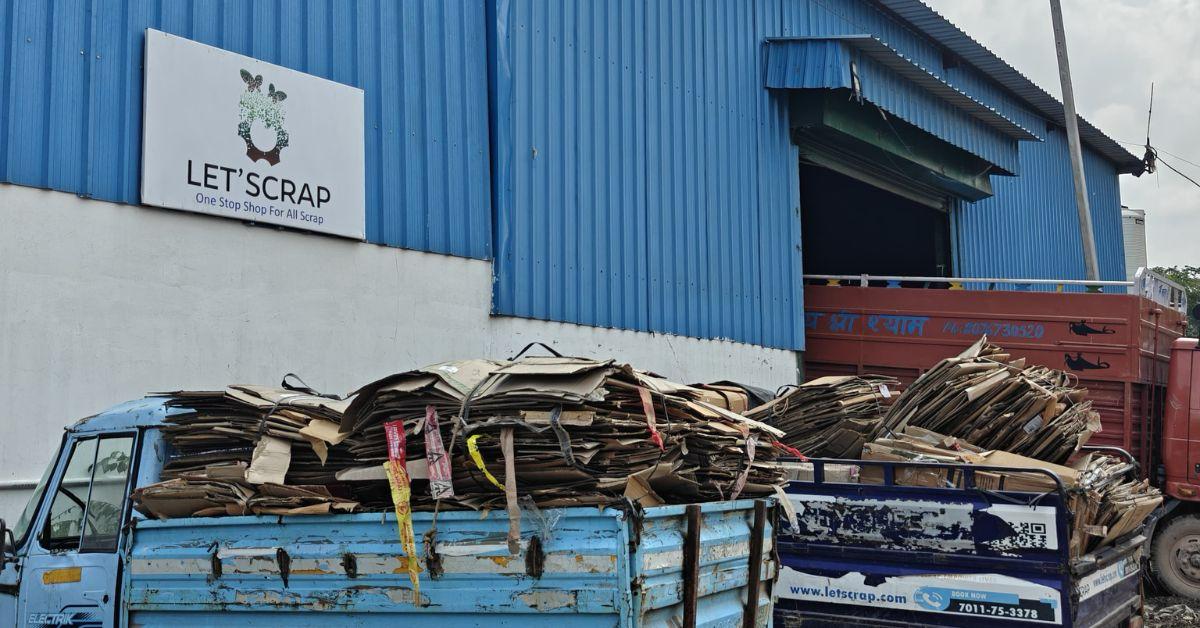 Image Source: The Better India
Image Source: The Better India
Startup Spotlight
What began as a casual dinner table conversation has now evolved into one of India’s most promising waste-tech startups. Let’s Scrap, founded by Anuj Bhatnagar, Udaibhan Singh, and Amit Gautam, is a tech-enabled platform that transforms corporate waste into profit. With operations spanning 12 cities and over 20,000 metric tonnes of waste recycled, the company is redefining how businesses manage scrap—bringing transparency, verified vendors, and fair pricing to a traditionally unorganized sector.
Key Highlights from the Journey
The idea was born when Anuj struggled to dispose of outdated equipment at his previous job.
Realizing the inefficiencies in India’s scrap industry, the trio launched Let’s Scrap to digitize and streamline waste management.
Since inception, the startup has served over 4,000 households and numerous corporates, helping them meet environmental compliance goals.
The company has already crossed multi-crore revenue milestones and continues to scale rapidly.
The Problem They Solved
India’s scrap industry has long been fragmented, opaque, and riddled with middlemen. Businesses often struggle to dispose of e-waste, metal scrap, and industrial leftovers in a compliant and cost-effective manner. Let’s Scrap identified three core issues:
Lack of verified vendors
No standardized pricing
Poor tracking and documentation
By building a digital platform that connects sellers with certified recyclers, Let’s Scrap introduced accountability and efficiency into the system.
Business Model and Operations
Let’s Scrap operates on a B2B and B2C hybrid model:
For Corporates: Offers bulk waste pickup, compliance documentation, and real-time tracking.
For Households: Provides doorstep collection of e-waste and recyclables via an app interface.
Revenue Streams: Commission from transactions, premium services for corporates, and data analytics for sustainability reporting.
The platform uses AI and machine learning to optimize pickup routes, predict scrap value trends, and ensure regulatory compliance.
Impact and Sustainability
Over 20,000 metric tonnes of waste recycled
Reduction of landfill contributions by thousands of tonnes annually
Support for circular economy principles by reintegrating materials into production cycles
Employment generation for waste collectors and logistics partners
Let’s Scrap is not just a business—it’s a movement toward responsible consumption and waste valorization.
Challenges and Lessons Learned
Initial skepticism from corporates reluctant to digitize waste management
Building trust in a sector dominated by informal networks
Navigating regulatory frameworks across different states
The founders credit their success to persistence, adaptability, and a deep understanding of the problem they set out to solve.
Future Plans and Expansion
Geographic expansion into Tier-2 cities and industrial clusters
Launch of a sustainability dashboard for clients to track their waste footprint
Partnerships with municipal bodies and CSR programs to scale community impact
Exploring international markets with similar waste management challenges
Let’s Scrap is also investing in R&D to develop smart bins and IoT-enabled waste tracking systems.
Conclusion
Let’s Scrap’s rise from a dinner table idea to a multi-crore enterprise is a testament to the power of purpose-driven innovation. By turning corporate waste into profit and impact, the startup is not only cleaning up India’s industrial landscape but also inspiring a new generation of entrepreneurs to find opportunity in overlooked problems.
Sources: The Better India, AchieveTrail
Advertisement
Advertisement






